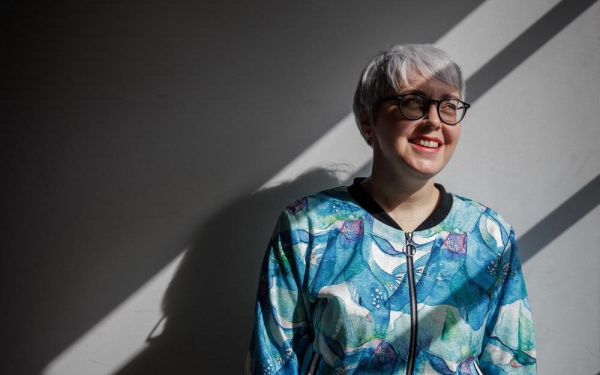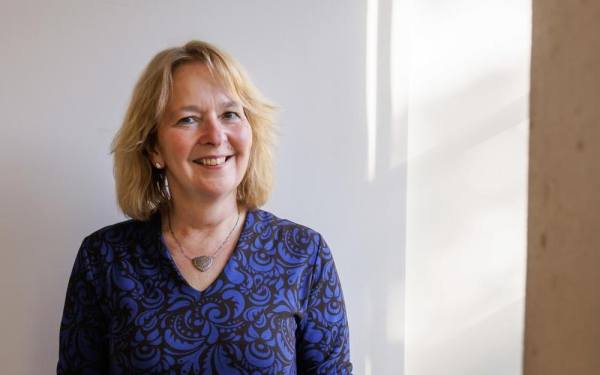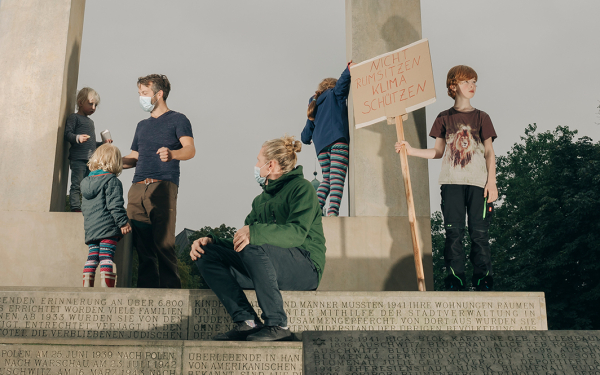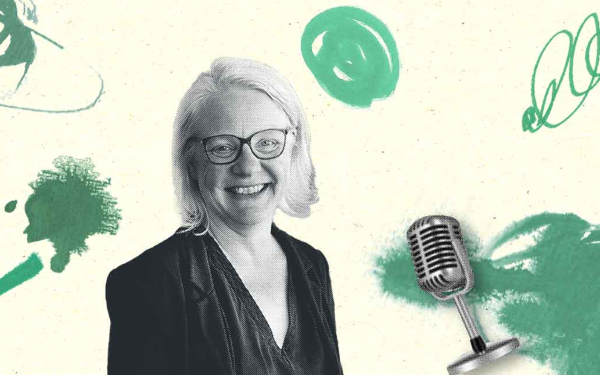An art in itself — opportunities and risks of transdisciplinary research
#Transdisciplinarity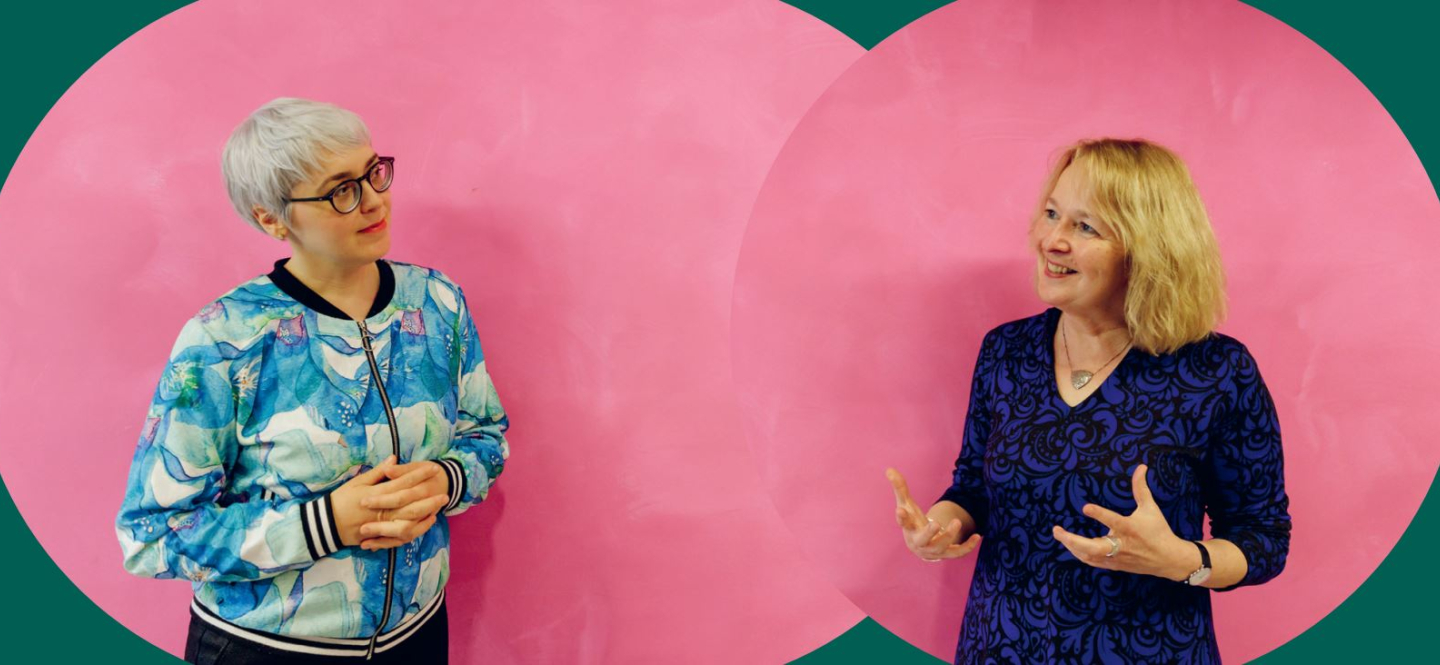
Gordon Welters für VolkswagenStiftung
Mobility researcher Sophia Becker (left) and Henrike Hartmann, Deputy Secretary General and Head of the Volkswagen Foundation's Funding Department
Is it such a good idea for researchers to collaborate with stakeholders from outside the academic community? A discussion on the risks and opportunities of transdisciplinary research that took place between Berlin-based mobility researcher Sophia Becker and Henrike Hartmann, Deputy Secretary General of the Volkswagen Foundation, moderated by science journalist Christine Prußky.
Dr Hartmann, researchers often complain about how tedious communication in interdisciplinary teams can be. In spite of this, the Volkswagen Foundation is now pushing researchers into expanding transdisciplinary research with stakeholders other than academics. Aren't you asking people to take on more than they can manage?
Henrike Hartmann (smiling): Well – for some, transdisciplinarity is an imposition, others see it as an opportunity. Be that as it may, the Volkswagen Foundation is convinced that in certain areas science can make faster progress if it involves stakeholders from outside the academic community. We think the effort is worthwhile.
When it comes to addressing major social challenges, scientists must not remain in their proverbial ivory tower.
What exactly do you mean?
Hartmann: Let's take the transport revolution: Theoretical knowledge alone is not enough to bring it about in practice. What is also needed is something like 'implementation know how'. This knowledge can be provided by the people embedded in practice.
Sophia Becker: That's right. Stakeholders know exactly what the hurdles are in transformation processes. As a mobility researcher, however, this is not the only reason why I deliberately work in a transdisciplinary way: application-oriented science would run the risk of overlooking the actual problem at hand if it didn't talk to the people responsible for implementation. If you manage to enter into a dialogue with relevant stakeholders, many pertinent research questions arise that you would not have come up with otherwise.
Hartmann: I wouldn't say that science is bypassing society in its research, but yes, when it comes to addressing major social challenges, scientists must not remain in their proverbial ivory tower. Stakeholders other than actual researchers are needed from the very start.
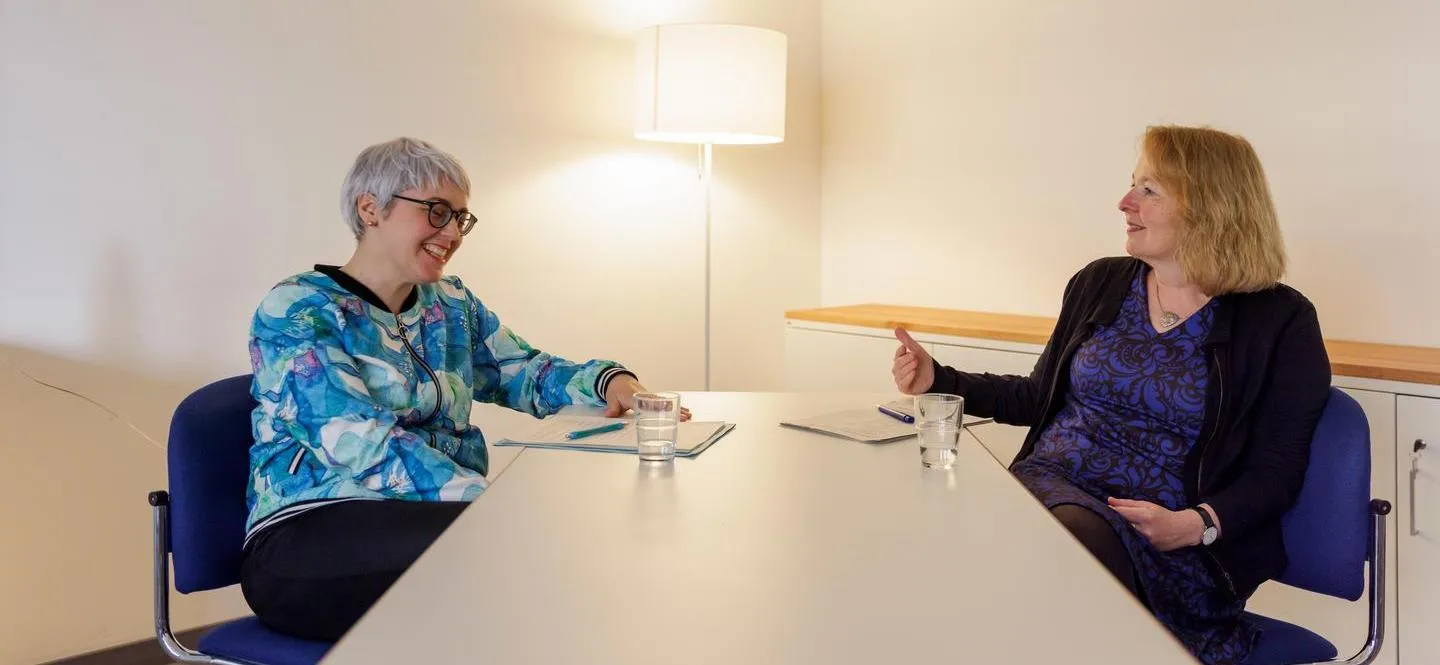
Sophia Becker (left) and Henrike Hartmann met for a discussion at the Marchstraße site of Technische Universität Berlin.
Does this also apply to the Volkswagen Foundation's funding initiatives?
Hartmann: At least for part of it. Our portfolio is strategically structured into basic research, understanding research, the promotion of bright minds at different stages of their career – and the area of 'social transformation'. Here in particular, we would like to see more involvement of stakeholders other than academics: for example, in the funding programmes on circularity or wealth research, to name just two examples.
In our opinion, cooperation and transfer can contribute to solving certain challenges. However, this method takes some getting used to for researchers – but that goes for us too. That is why we subject the corresponding processes to accompanying research in order to gain new scientific insights for our funding work. Scientific quality is and always will be essential for us. It has absolute priority.
Becker: However, the established practice of evaluating scientific quality has long been criticised. Publications, citations, third-party funding, and other quantitative factors are still decisive, although even major research funding organisations such as the DFG are now calling for more attention to be paid to the quality of content. How do you deal with this in transdisciplinary projects? Do you consider transdisciplinarity as a separate dimension and rely on the transdisciplinary research experience in the team? Researchers who work in this way tend to publish less than others because they invest a lot of time in finding practice partners and building and managing the network.
Hartmann: We actually focus on both in the review process: the scientific idea remains the decisive factor in transdisciplinary projects. At the same time, we interview the people involved to see whether they are communicatively capable of carrying out a project with stakeholders from outside the academic community. We are aware that this form of working takes more time, but we have decided not to plan in a time bonus from the outset. The funding period is five years.
Is that sufficient, Professor Becker?
Becker: Five years is quite reasonable. By the time the funding starts, a lot has already been achieved. The greater challenge lies in the phase leading up to submission of the research proposal and the time lapse waiting for approval. During this time, relevant stakeholders have to be found and persuaded to participate. Because the project has not yet been finalised, it is difficult for potential partners to enter into future commitments. When I needed written letters of intent for our project from the Senate Department for Transport or a Berlin district, I had only just completed my doctorate. Nobody replied to me at the time.
Wie haben Sie es geschafft?
Becker: I visited the responsible district mayor on several occasions, held talks, and in the end held the declaration under his nose and said: 'Please sign this!' That was just one day before submitting the proposal because I didn't get an earlier appointment. Transdisciplinarity calls for perseverance.
Do you have to hunt down the practice partners for the project yourself? After all, they have other things to do than research.
Becker: Keeping the network running is an art in itself. You need savvy and diplomacy in order to integrate the interests of the individual players. You don't learn that doing a doctorate. A doctorate is all about specialising in one particular aspect. With transdisciplinary projects, you have to ask yourself: 'How could I organise the project to generate added value for science and at the same time a concrete benefit for society, the city or the region?' As Vice President for Sustainability, Transfer and Transdisciplinarity at TU Berlin, I have developed this mindset even further.
Dr Hartmann, how do you find researchers with these skills?
Hartmann: It is challenging, but more and more scientists are choosing to adopt this kind of research practice. In addition, an external personnel consultancy will support us in organising the review process. I can hardly wait to see the results.
You need savvy and diplomacy in order to integrate the interests of the individual players.
Professor Becker, how do you actually ensure the scientific level in your particular project?
Becker: That is also part of the art. The decisive factor is the research question. It must be scientifically original, relevant to the needs of society, and realisable in a good research design. But it must not be purely a question of transfer.
Do you know of any transdisciplinary teams that broke up over the quality issue?
Becker: This is a rare occurrence, but it does happen. However, team failure does not necessarily have to be due to the transdisciplinary component. Conflicts can also arise between disciplines. Looking back, for example, we didn't take enough time to find an interdisciplinary approach before we brought our practice partners to the table.
Hartmann: This is a very sensitive point: when does it make sense to go beyond the academic institutional boundary? We discuss this in the Board of Trustees, and we also ask ourselves this question in respect of our initiatives and reviews. Researchers and stakeholders other than academics come together with expectations and goals that are only compatible to a limited extent. This makes it all the more important to check whether the transdisciplinary research mode is really helpful in the planned project. We do not want to promote predator communities in search of grants.
Another reservation in the context of transdisciplinarity is that joint research with society undermines academic freedom. Was there scepticism at the Volkswagen Foundation?
Hartmann: The concern exists, but in my opinion it is unfounded. Whether in a disciplinary, interdisciplinary or transdisciplinary project – it is always up to the researchers to formulate their research question and define the terrain in which they are working. If the project is well planned and communication and responsibilities are clear, I see no problem for academic freedom. We already address any critical points when submitting the application. This minimises the risk of unintended project developments.
The longer we talk, the clearer the complexity of the transdisciplinary research path becomes. Prof Becker, if you had known what was coming, would you have done it?
Becker: Absolutely! Science thrives on the field of tension between tradition and innovation. It works with proven theories and methods to generate new findings. However, we now need new theories and methods in order to find solutions for future challenges. It is not yet possible to say what contribution transdisciplinary research can make in this area. However, it can be assumed that the results of transdisciplinary projects are much more likely to have an impact on society.
Are we talking about a revolution here?
Hartmann: Revolution is a big word. Transdisciplinary research doesn't turn everything upside down. We will also only use a certain amount of our funding to support such projects. Transdisciplinarity is more like an innovation whose strength we don't yet know exactly. Can social transformation really be achieved faster and better with this mode of research? This is exactly what we are trying to find out.

